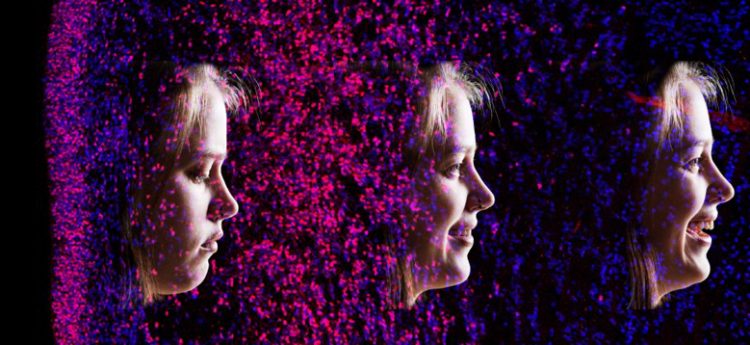New research centre focuses on development of brain and behaviour

What emotions have in common is that they affect different organisational levels in the brain, from from genes to protein synthesis on to neurons and neural networks. © MPG / iStock
To provide answers to these questions, the Max Planck Society and University College London have launched the Max Planck UCL Centre for Computational Psychiatry and Ageing Research.
Psychiatric disorders such as depression, schizophrenia, or autism often escape successful treatment. Some major molecular and structural changes in the brain have been identified, but viable accounts of how these changes link to behaviour are missing.
Likewise, the associations between changes in brain and behaviour in the course of normal and pathological cognitive aging are not well understood. The central goal of the newly established Max Planck UCL Centre for Computational Psychiatry and Ageing Research is to better understand the causes of psychiatric disorders as well as the causes of differential cognitive development in adulthood and old age.
“At the Max Planck UCL Center for Computational Psychiatry and Ageing Research, we bring together top international researchers in the fields of lifespan psychology and neurology, which enables us to bridge the gap between experimental and clinical research,” says Peter Gruss, President of the Max Planck Society. “Such an outstanding cooperation is only possible between institutions of great international standing and prestige, such as the Max Planck Society and University College London.”
The processes related to psychiatric disorders and to normal cognitive function alter the brain at multiple level of analysis, from genes to protein synthesis and on to neurons and neural networks. Computational models are a powerful means of bridging the gaps between these levels. Scientists can alter models of normally behaving younger adults to simulate the alleged causes of cognitive aging or psychiatric disorders (e.g., depression), and then check whether such alterations result in predicted behavioural deficiencies that resemble those observed in older adults, or the disease state of interest (e.g., depressed patients)
Scientists at the Centre will relate data on the structure and functioning of the brain to detailed behavioural observations of individuals and deduce prognoses for their development. The Centre’s findings will provide information on how cognitive functioning can be maintained into old age, and on how psychiatric disorders can be better recognized and treated more efficiently.
Two Co-Directors form the Leading Team of the Centre: Ray Dolan for University College London and Ulman Lindenberger for the Max Planck Society. In addition, a Coordination Committee represents the four research institutions most directly involved in the Centre: the Gatsby Computational Neuroscience Unit (Peter Dayan), the Max Planck Institute for Cognitive and Brain Sciences (Arno Villringer), the Max Planck Institute for Human Development (Ulman Lindenberger), and the Wellcome Trust Centre for Neuroimaging (Ray Dolan). The Centre has two sites, one in London and the other in Berlin. The London site is located at Russell Square, in close vicinity to the Wellcome Trust Centre for Neuroimaging. The Berlin site is housed at the Max Planck Institute for Human Development.
The ceremony celebrating the opening of the new Centre will be held on April 1, 2014, at the Royal Society in London. Welcoming words will be spoken by Michael Arthur, the President and Provost of University College London, Peter Gruss, the President of the Max Planck Society, David Willetts, Minister of State for Universities and Science, United Kingdom, Rudolf Adam, Chargé d’Affaires a.i. of the German Embassy London, Ray Dolan, Director at the Wellcome Trust Centre for Neuroimaging, and Ulman Lindenberger, Director at the Max Planck Institute for Human Development. Nobel Prize laureate Eric Kandel, Director at The Kavli Institute for Brain Science, Columbia University, New York, will hold the keynote lecture.
Collaboration between the Max Planck Society and University College London
Contact
Kerstin Skork
Public Relations
Max Planck Institute for Human Development, Berlin
Phone: +49 30 8240-6211
Media Contact
All latest news from the category: Life Sciences and Chemistry
Articles and reports from the Life Sciences and chemistry area deal with applied and basic research into modern biology, chemistry and human medicine.
Valuable information can be found on a range of life sciences fields including bacteriology, biochemistry, bionics, bioinformatics, biophysics, biotechnology, genetics, geobotany, human biology, marine biology, microbiology, molecular biology, cellular biology, zoology, bioinorganic chemistry, microchemistry and environmental chemistry.
Newest articles

Silicon Carbide Innovation Alliance to drive industrial-scale semiconductor work
Known for its ability to withstand extreme environments and high voltages, silicon carbide (SiC) is a semiconducting material made up of silicon and carbon atoms arranged into crystals that is…

New SPECT/CT technique shows impressive biomarker identification
…offers increased access for prostate cancer patients. A novel SPECT/CT acquisition method can accurately detect radiopharmaceutical biodistribution in a convenient manner for prostate cancer patients, opening the door for more…

How 3D printers can give robots a soft touch
Soft skin coverings and touch sensors have emerged as a promising feature for robots that are both safer and more intuitive for human interaction, but they are expensive and difficult…





















